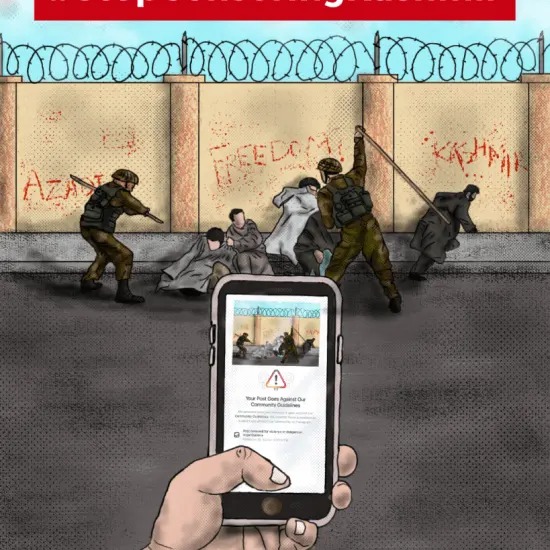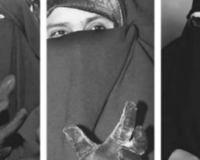Kashmir has long served as a crucible for the Indian state’s experimental endeavours. Since the dilution of the region’s semi-autonomous status in August 2019, this beleaguered land, bereft of the rule of law, has increasingly become a theatre for the implementation of measures entirely foreign to modern democracies. The inhabitants of the land are treated as Guinea pigs whose fundamental rights and dignity are egregiously violated. Under Indian military occupation, the indigenous population has been reduced to captives, perpetually under the watchful eye of surveillance. Every facet of their lives, from communication on various platforms to even the simple act of moving from one place to another, is meticulously tracked through state-of-the-art technology and an extensive network of military checkpoints that dot the region. The existence of military checkpoints and concertina wires has been more pronouncedly felt since the region was robbed of its semiautonomous status and the subsequent clampdowns that followed.
On the 25th of September this month, the region’s police department was granted unrestricted access to major social media platforms, including WhatsApp, X (formerly known as Twitter), Snapchat, Instagram, Telegram, and TikTok, to monitor citizens suspected of expressing dissent against the military occupation of their homeland. Given India’s status as an occupying power in Jammu and Kashmir, these measures are an extension of the occupation’s effort to assert complete control over the region and its populace. In January of this year, a report revealed that the region’s police department allocated a substantial sum of 100 crores without tender for the procurement of advanced security systems for comprehensive surveillance of the population. These funds were utilized to establish integrated command canters and install an extensive CCTV surveillance infrastructure. In 2021, Kashmiri resistance leaders, prominent journalists, academicians, and activists were targeted between 2017 and mid-2019 through the Israeli software Pegasus. The report revealed that all these significant people belonging to the occupied territory figured in the snoop dragnet. The Indian government’s persistent use of social media platforms for surveillance of the Kashmiris is an infringement of both the right to freedom of speech and the right to privacy as recognized by International Laws. As far as the right to privacy is concerned, international law is clear that no one’s privacy should be violated. Article 17 of International Covent on Civil and Political Rights CCPR by the UN General Assembly says that in case of infringement of privacy, everyone has the right to resort to the protection of law. Although India has ratified CCPR through the surveillance of Kashmiris, it is committing a violation of the treaty.
Urgent Appeal:
Ms. Irene Khan, Special Rapporteur on the promotion and protection of the right to freedom of opinion and expression, and Ana Brian Nougrères, Special Rapporteur on the right to privacy, we beseech your esteemed offices to turn your discerning gaze toward the distressing situation unfolding in the Indian administered Jammu and Kashmir. The magnitude of the crisis demands immediate attention and intervention.
It is imperative, dear Special Rapporteurs, that we cast a penetrating light on this dire situation. We appeal to your offices to take cognizance of India’s increasingly autocratic actions in the subjugation of people who have long suffered the breach of their privacy rights. The inhabitants of Indian-occupied Jammu and Kashmir now find their lives subjected to an insidious web of extreme surveillance, infringing upon their most basic human rights and dignities.
In the spirit of safeguarding digital privacy rights and upholding the principles of democracy and human rights, we implore you to initiate a thorough investigation into the ongoing crisis in IOJK. Your intervention can help alleviate the suffering of the innocent civilians ensnared in this web of surveillance and oppression.






